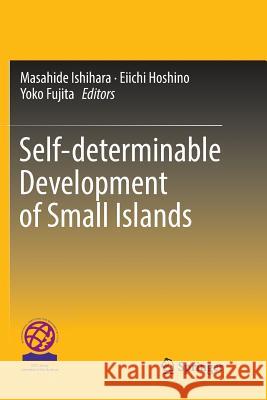Self-Determinable Development of Small Islands » książka
topmenu
Self-Determinable Development of Small Islands
ISBN-13: 9789811090875 / Angielski / Miękka / 2018 / 303 str.
Kategorie:
Kategorie BISAC:
Wydawca:
Springer
Język:
Angielski
ISBN-13:
9789811090875
Rok wydania:
2018
Wydanie:
Softcover Repri
Ilość stron:
303
Waga:
0.45 kg
Wymiary:
23.39 x 15.6 x 1.73
Oprawa:
Miękka
Wolumenów:
01
Dodatkowe informacje:
Wydanie ilustrowane











